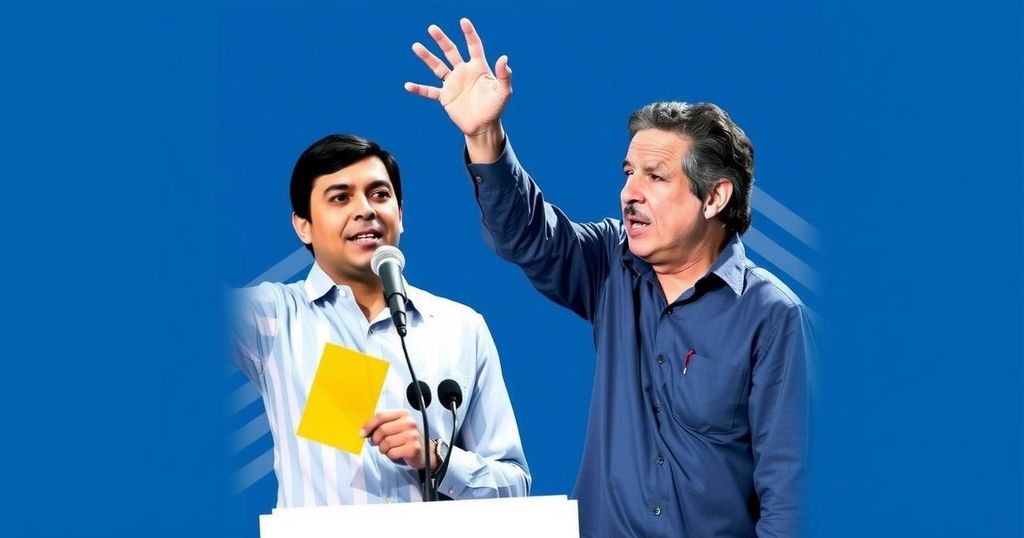Uruguay’s Conservative Government Defeated as Left-Wing Candidate Emerges Victorious

Uruguay’s conservative ruling party conceded defeat in the presidential run-off to left-wing candidate Yamandu Orsi, ending a five-year government. With a voter turnout of 89.4%, Orsi, representing the Broad Front, aims to lead with moderate policies focused on investment and social security reforms, while addressing poverty and crime. His victory reflects a global trend of voter sentiment against incumbency in the face of economic challenges.
In a significant political shift, Uruguay’s conservative ruling party conceded defeat in the presidential run-off election to left-wing candidate Yamandu Orsi. Álvaro Delgado, the candidate from the conservative coalition, expressed his regret but acknowledged Orsi’s victory, marking the conclusion of a government that began with the election of Luis Lacalle Pou in 2020 after breaking a 15-year rule by the Broad Front. The election saw a voter turnout of 89.4%, as citizens engaged in a democratic process aimed at steering the nation towards new leadership.
Yamandu Orsi, representing the centre-left Broad Front, is poised to lead Uruguay, bringing with him a platform that although described as a “new left,” mirrors the earlier governance style of the Broad Front, characterized by a blend of market-driven policies alongside welfare programs. Despite the political change, Orsi aims to maintain continuity on some pressing issues, collaborating with his predecessor on matters such as poverty alleviation and the reduction of organized crime.
As the election results are finalized, Orsi’s victory represents a broader trend of global dissatisfaction with trend of incumbent parties thrust into response due to economic challenges exacerbated by the pandemic. Notably, Orsi appeals to the electorate by advocating for incentives to attract investment while proposing reforms to social security that do not compromise fiscal responsibility. This balancing act demonstrates a commitment to ensuring both economic growth and social welfare in Uruguay.
Uruguay has undergone notable political changes in recent years, with the election of a conservative government in 2020. Previously, for 15 years, the left-leaning Broad Front established policies that gained international recognition, such as the legalization of abortion and same-sex marriage. The recent presidential run-off highlights shifting voter sentiments, particularly the desire for renewed governance as global trends in elections reveal a push against incumbent parties facing economic difficulties linked to the pandemic. The engagement of citizens in electoral processes is a cornerstone of Uruguay’s democratic framework, with compulsory voting ensuring high levels of participation.
The recent elections in Uruguay have resulted in a significant political transition from a conservative government to the leadership of Yamandu Orsi, signaling a desire for change among the electorate. Orsi’s moderate stances and his commitment to ensuring both economic and social reforms reflect an understanding of voter expectations for pragmatic governance. As the nation approaches this new chapter, collaboration between the incoming administration and the previous government could pave the way for effective policy continuity while addressing pressing socio-economic issues.
Original Source: www.shropshirestar.com








